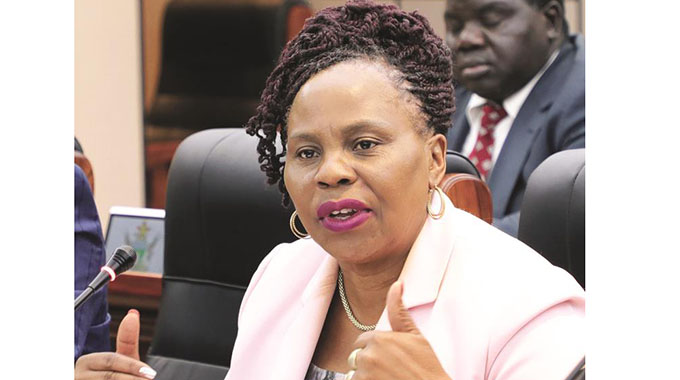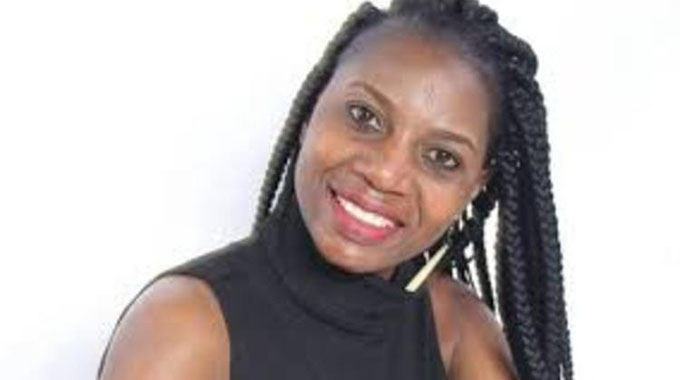Sanctions: A citizen’s lament

Elliot Ziwira Senior Writer
Let me tell you straight away who I am, so that when you discuss my plight over wafting whiffs of rich cigar smoke and sips of whisky from diamond rimmed decanters in your elliptical air-conditioned offices, you may as well discern how little you know of my story.
I am a Zimbabwean, an African of colour from that beautiful continent, the scramble for whose richly endowed belly is recorded in History; our history of struggle and toil. Yes, I am a Zimbabwean, and I am proud of it.
I have a story to tell, not because it hasn’t been told, No! But because it has been told over and over again through many third person voices, whose idea of the tale was not only to amplify it, but to distort it. Having changed many ears and escaped many mouths, the original story has been lost in the maze of it all. Nobody seems to know whose story it really is now. Everything is so distorted that what only remains of it is the word suffering.
I guess, you do not know what suffering means, because you have never been exposed to it. But I know what it means to wake up in the morning each day fighting the urge to cry; to really wail, wondering whether the word suffering was created for you and your family alone.
Well, my story seems to be running ahead of itself, you see, it is that kind of tale that refuses to be bottled anymore. May be you have had that kind of feeling once, when you got so impatient that you felt like opening up to strangers about events in your life that really got you questioning whether you were still alive or had already joined your ancestors.
Perchance you have lost the trail, I am a Zimbabwean and an African. My country was once colonised by the British, and got independent in 1980, after a protracted liberation war at the cost of over 50 000 of my fellow countrymen. It was a struggle, such a struggle as has become our daily bread.
It has not always been like this, that I have to tell you also. We used to be a flourishing jewel; the breadbasket of Africa, with a currency at par with the British pound. Collective memory recalls that the downturn came in the early 1990s when our leadership was advised by their friends from the West to adopt a policy that would give industry free play and loosen Government’s hold on the means of production. Shared memory has not forgotten the era of the Economic Structural Adjustment Programme, and the abattoirs of broken dreams in its wake. We thought they were our friends — wise men from the West.
Just about everything fell down on us when the issue of land, our land was raised. The land is close to our hearts as Africans, because without it we are naked. It clothes us, feeds us and shields us from the vagaries of both nature and man. Without our land, an inheritance bestowed from one generation to another, we are doomed.
So it was that when we reminded our erstwhile coloniser-friends to remember our tête-à-tête behind closed doors at Lancaster House, they scoffed at us, and called the agreement a mere piece of paper. But you see, we Zimbabweans are a humble people; we are never known to throw the first punch.
My story begins with the land, and is all about the land, for it was because of our desire to correct the recalcitrant imbalances that colonialism brought to our doorsteps that a collective decision by our friends from where the sun sets, was passed against us.
In a heavenly and wealthy country so far away from us, a parliament-both lower and upper Houses, at the instigation of Big Brother, met to decide our fate. Curiously they came up with a law; Zimbabwe Democracy and Economic Recovery Act of 2001, amended in 2018. Our Motherland, small and insignificant as she is, was slapped with sanctions. I really wonder why.
They keep on telling us that they are called targeted sanctions, but this vexes me, it sure does.
We in Africa believe in communal ownership of amenities — we share, that is what makes us one. We believe that no man is an island, hence, we share salt, mealie meal, wells, boreholes, grazing land, sorrows, joys and other such facilities that keep us going.
So when we hear that so and so has been targeted not to use such amenities that are key to their families’ well-being, we know that it is not them who will suffer, but their children. Collective wisdom informs us that a villager’s children are ours as well.
Suppose Jambahwe is targeted, because of a tiff with the village head, or such other individual with influence, for he is such a lowly man, when his wife or children seek salt, matches or mealie-meal, should we also deny them? Should we tell our children not to play with his children, or attend school with them? Should his children be barred from using the bathing pond at Nyakambiri, the dip tank at Guwati, the playground at Mahwohwa, the clinic at Dombodzvuku there, and the open vlei where every villager takes his cattle to graze? If, indeed, we should do that and bar them also from the shops at Casino, the communal well and the borehole, then we would have lost that humane part in us; which tells us that we are because all of us are.
So if Jambahwe’s wife and children suffer the pangs of hunger at our hands, would it help them to be told that it is their father and her husband who is targeted? And if it turns out that the issue between their father and the village head or Mupfumi, the influential man, involves a piece of land that rightfully belongs to them (not the lie that he defecated in the communal well), would they also not take it as the worst form of insensitivity, and set the battle lines in defence of their heritage?
This issue of targeted sanctions, then, has all, but left us asking a lot of questions, especially those that have to do with this so called democracy. I am a Zimbabwean, and I am suffering, such suffering that you have never experienced.
Like my fellow countrymen, I wake up to dry taps (and you say water is a human right), and get back home after hours of toil, to darkness. Could this be the darkness you had in mind when you referred to our Africa as the Dark Continent?
I wake up every morning, bracing myself for the hard knocks that have become our norm; paring them with hope, for I need lots of hope to endure it all.
My salary has lost pace with prices of basic consumer goods, which are forever heading north. Had it not been for the subsidised ZUPCO buses, most of my compatriots would have long since stopped going to work.
In my country driving to work on a daily basis is a preserve for the well-heeled. Talk of bread, yes, bread, and you would draw blank faces. Bread has become a luxury in the same basket with meat, milk, cheese, yoghurt, ice cream and other such consumables you take for granted.
Recently, I went to my rural home in Murehwa; I can no longer go there as often as I used to; I just can’t afford it; and the kind of suffering I came face-to-face with left my heart bleeding. There is so much pain, so much suffering. Everywhere, the suffering is so palpable you can touch it. Have you ever been in a situation where you know you should help, but you cannot, because you also need help? It’s so disheartening.
How I dread phone calls, because they are always reminding me of this obligation or that. Dear God, they tell me that I should top-up the fees I paid for my two children at boarding school — a hundred percent top-up. Imagine! Just how could that be! The landlord; dear God! Where really can I get this foreign currency he badgers me about?
I have stopped driving to work; I have stopped just about everything, but still I remain burdened. If there is one thing I dread, it is falling sick, or having to bear the pain of visiting our public hospitals. Not that I can avoid it, for in Africa we take care of our relatives. Dear God, the situation at our hospitals is such a sight that draws tears to the eyes. Death clogs your nostrils the moment you step in!
I feel like giving up, and join hordes of my fellow countrymen in the Diaspora, but just where can I go? Zimbabwe is my country, it is the only country I know. I have a passport, but I rarely use it, because my heart is here. But in my country a passport is gold. It is considered the gateway to the good life — where I don’t know. Everybody wants to have a passport; to escape, to fend for the family through cross-border trading. But now it is difficult to acquire the document.
I am pained! Am drowning in sorrow, and suffering; such suffering that I, a Zimbabwean can only express, because I live it, walk it, witness it, dream it, and see it reflected in my mirror, on a daily basis.
With the passage of each working day, I think of the pensioners in bank queues, bemoaning the many years they toiled for nothing; and a nauseating feeling rises from the pit of my stomach, perforates my heart and rises to my throat. It is a feeling of despondency. Maybe I should remain positive, because all I have on my hands is time; only that, Time.
So when next you beam my story on your gargantuan screens, and zoom in on my scrawny image, to have a clear look through your gold rimmed spectacles, know that I also, like everyone else, is human too. I am a citizen of a country inhabited by fellow human beings with dreams and aspirations. I desire to have a choice on who should govern my affairs without being coerced through politics of the stomach. Please tell me, these targeted sanctions, on whoever you say is targeted, have they also been extended to me? Or they have always been?








Comments